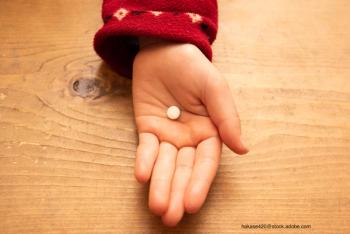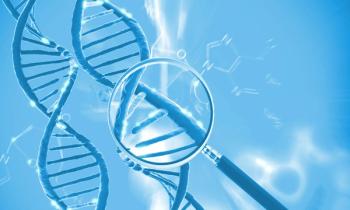
AZSTARYS (serdexmethylphenidate and dexmethylphenidate) is available for prescription to help provide rapid and extended duration of attention-deficit/hyperactivity disorder (ADHD) symptoms.

AZSTARYS (serdexmethylphenidate and dexmethylphenidate) is available for prescription to help provide rapid and extended duration of attention-deficit/hyperactivity disorder (ADHD) symptoms.

A study examines the effect of after-school activity participation on a child's attention-deficit/hyperactivity disorder (ADHD) severity.

Stimulants are recommended as the first-line treatment for attention-deficit/hyperactivity disorder (ADHD). A study examines whether α2-adrenergic agonists could be effective as well.

A study examines if promoting positive behaviors including masking leads to improved face covering in children with autism spectrum disorder and/or attention-deficit/hyperactivity disorder.

The US Food and Drug Administration (FDA) approves first novel non-stimulant medication to treat attention-deficit/hyperactivity disorder (ADHD) in children in a decade.

Unfortunately, disparities in health care are nothing unusual. A report examines if there are disparities in attention-deficit/hyperactivity disorder (ADHD) diagnosis and treatment due to race and ethnicity.

A new study examines whether maternal autoimmune diseases are linked to attention-deficit/hyperactivity disorder (ADHD).

A presentation at the virtual 2020 American Academy of Pediatrics National Conference & Exhibition reminded practitioners of the 3 guiding principles of psychopharmacology.

COVID-19 has created many stresses: mental, job-related, and health. For some caregivers, these stressors are complicated further with caring for a child with attention-deficit/hyperactive disorder (ADHD).

More than 1 condition can have an impact on health outcomes. A new investigation examines how multimorbidity can impact educational outcomes.

Attention-deficit/hyperactivity disorder (ADHD) was first recognized over 100 years ago, but the diagnostic criteria has changed over the years. Here's a look at the latest guidance for diagnosing ADHD.

Following the diagnosis of attention-deficit/hyperactivity disorder (ADHD), the next step is treatment, which can include parent behavior management training, school-based interventions, and medication. Here's a look at the latest in ADHD treatments.

Research has indicated that prenatal exposure to acetaminophen has an impact on attention-deficit/hyperactivity disorder (ADHD). An investigation offers even more evidence.

Attention-deficit/hyperactivity disorder (ADHD) is marked by age-inappropriate levels of inattention and activity. A report from Finland examines how relative immaturity in the first years of school could increase the risk of ADHD medication use.

Endocrine-disrupting chemicals are nearly ubiquitous in day-to-day life. Could they be linked to attention-deficit/hyperactivity disorder-like (ADHD) behavior?

Severe iodine deficiency in pregnancy has been linked to intellectual disabilities in offspring. An investigation studies whether the same is true for mild-to-moderate deficiency.

Tics and attention-deficit/hyperactivity disorder can co-occur. A presentation at the 2020 Virtual Conference on Pediatric Health Care offers guidance.

The US Food and Drug Administration (FDA) permitted marketing for the EndeavorRx, a game-based digital device meant to improve attention function in patients with attention-deficit/hyperactivity disorder (ADHD).

Teenagers with attention-deficit/hyperactivity disorder (ADHD) or parent-reported “trouble staying focused” are poorer drivers and make more driving errors than their peers during the teenagers’ learning permit period according to recent survey data.

A new study reveals that mothers who are aged younger than 20 years when their first child is born were more likely to have a child with attention-deficit/hyperactivity disorder (ADHD), and researchers suggest maternal age and other genetic factors may be the cause.

Children with ADHD often face other psychological or behavioral issues, and a new update to the clinical practice guidelines for the condition address how to manage them.

For years, researchers have raised concerns about acetaminophen use during pregnancy, now a new study that used cord blood to measure acetaminophen levels at birth links the commonly used medication to later ADHD and autism diagnoses.

Girls with ADHD are six times more likely to be teen moms, according a new report.

Attention-deficit/hyperactivity disorder (ADHD) may affect a significant number of children in a pediatric practice. This article reviews diagnostic criteria, comorbidities, and complications of ADHD as well as pitfalls that confront the treating pediatrician.

Maternal smoking has been linked to later development of attention-deficit/hyperactivity disorder (ADHD) in offspring in many studies, but a recent report shows that heavier smoking increases the risks even more.